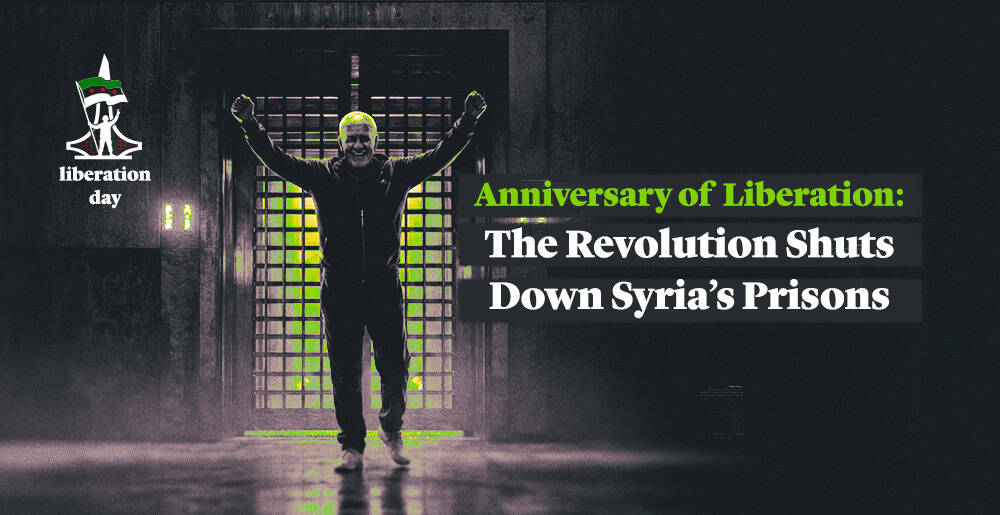Amid Death Threats, Will Syria’s al-Sharaa Attend the Baghdad Summit?

“Iraq has fallen victim to Iran's veto on positive engagement with Syria.”
As preparations for the 34th Arab summit in Baghdad are underway, questions have emerged about Syrian President Ahmed al-Sharaa's potential attendance.
This comes after Iraqi Foreign Minister Fouad Hussein announced that invitations would be extended to Arab leaders, including al-Sharaa, despite Iraq not having congratulated him on assuming office.
The Iraqi Ministry of Foreign Affairs confirmed last week it had begun administrative and security preparations for the summit, set to take place in May 2025, amid significant changes in the Middle East.
Unlike the broader Arab consensus, Iraq has aligned itself with Iran in refraining from congratulating al-Sharaa on his appointment as Syria's transitional president., though Hussein has denied that there are any preconditions for normalizing relations with Damascus, as he explained in a February 13 television interview.

Threats and Warnings
Iraq's foreign minister's announcement inviting Syrian President Ahmed al-Sharaa to the upcoming Arab summit in Baghdad has sparked a political and media campaign led by pro-Iran factions, with some even threatening to kill him if he enters Iraqi territory.
These groups launched a campaign on X, stating: “We Reject the Invitation to al-Jolani,” posting tweets and images accusing al-Sharaa of committing “crimes” in Iraq while being a member of al-Qaeda after 2003.
In a clear death threat directed at Syrian President Ahmed al-Sharaa, Husien al-Safi, a journalist close to Iran-aligned militias, wrote, “Al-Jolani may come to Iraq, but be sure, he won’t leave.”
Abu Kawther Askri, a media figure from the Popular Mobilization Forces, vowed on X that they would be “on the lookout” if al-Sharaa came to Baghdad, calling the Iraqi foreign minister “submissive.”
“The foreign minister's invitation to al-Sharaa does not represent the Iraqi government, but rather an individual action, as the normalization of relations with the new Syrian leadership has not yet been decided,” said Alaa al-Hadadi, a member of the State of Law Coalition led by Nouri al-Maliki.
Former Iraqi intelligence officer Salim Aljomaili shared on X details of a discussion about al-Sharaa’s potential visit to Baghdad. He highlighted the rejection voiced by several Iran-aligned factions regarding the invitation issued by the Iraqi foreign minister.
“I listened to several opinions from prominent media figures, including Wael al-Rikabi, Haidar al-Barzanji, Haidar al-Musawi, Mona Sami, and others on X. All opinions condemned the invitation extended by Iraq to Syrian President Ahmed al-Sharaa for the upcoming Arab League summit in Baghdad.”
“A broad media campaign is calling for the cancellation of the invitation or for protests to be organized during al-Sharaa's visit to Baghdad,” he said.
“Some have speculated that Prime Minister al-Sudani could lose all support in central and southern Iraq.”
Expected Absence
Regarding Syrian President al-Sharaa's potential visit to Baghdad and his attendance at the upcoming Arab League summit, Iraqi affairs analyst Hamid al-Abidi predicted that al-Sharaa would not personally attend, but would instead send a representative, most likely his foreign minister, Asaad al-Shaibani.
“Al-Shara will not come to Iraq because the circumstances suggest otherwise. First, he did not receive any congratulations upon assuming the presidency of Syria. His invitation to the summit is seen as part of a standard Arab summit procedure, implying that Baghdad is forced to extend the invitation, rather than reflecting Iraq's desire for renewed engagement with Syria’s new administration,” he told Al-Estiklal.
Al-Abidi also dismissed the possibility that any Iraqi faction would attempt to assassinate al-Sharaa in Baghdad, saying such an act would have severe consequences, triggering internal, regional, and even international crises, as the new Syrian government is internationally recognized and even engaged by the U.S.
The researcher noted that the media campaign and threats from Iran-aligned factions were likely part of early electoral campaigning, aimed at garnering support and fueling sectarian sentiment ahead of Iraq's parliamentary elections set for October 2025.
“Iran's allies in Iraq have yet to come to terms with the end of Bashar al-Assad's regime in Syria, especially since the alternative to Iran’s influence is far from their reach.”
The situation, he added, has become a key talking point in their electoral campaign, as they have had little to show for their efforts since 2003.
Iraqi political analyst Falah al-Mishaal also predicted that al-Sharaa would not attend the summit and would delegate Foreign Minister al-Shaibani instead, citing several reasons.
“One key reason was the diminishing significance of the Baghdad summit, as it follows two other Arab summits—one emergency summit scheduled for the end of February in Egypt and another in Saudi Arabia focused on key Palestinian issues,” said al-Mishaal during a TV interview.
On February 8, former Syrian Ambassador to Iraq Nawaf al-Fares advised President Ahmed al-Sharaa not to attend the Arab League summit in Baghdad, suggesting the possibility of an assassination attempt.
“Advice to President Ahmed al-Sharaa: It is rumored that you plan to attend the Arab summit in Baghdad. History has taught us many lessons. We urge you to reconsider this decision, as some events are not just diplomatic occasions but serve as lessons not to be forgotten,” he posted on X.
Iran's Veto
Although Iraqi intelligence chief Hamid al-Shatri visited Damascus to meet with al-Sharaa, former Iraqi politician and lawmaker Misha’an al-Juburi claimed that Iran has effectively blocked Iraq’s efforts to normalize relations with Syria.
“Iraq has fallen victim to Iran's veto on positive engagement with Syria. The Iraqi government initially sent the intelligence chief for diplomatic talks, but the situation took an abrupt turn,” he said during a television interview.
On December 26, 2024, an Iraqi delegation led by al-Shatri visited Damascus and met with President al-Sharaa to discuss security and stability on the shared borders between the two countries.
“The way things are unfolding in Iraq now suggests that there is an Iranian veto at play. Shiite bloggers who initially showed a soft stance have shifted dramatically, accusing the Syrian government of being enemies and calling for their destruction,” al-Juburi added.
The Iraqi politician also alleged that Iran had directed media outlets under its influence, particularly those part of the Islamic Radio and Television Union, to attack and incite against Syria’s new administration.
Al-Juburi questioned the consistency of labeling al-Sharaa as a terrorist, pointing out that many figures in Iraq who are similarly on terrorism lists were not treated the same way. “Why is one considered a terrorist while the other is called a resistance fighter?”
Amid Iraq’s ambiguous position on Syria, Nouri al-Maliki called on February 1 for Iraq to confront what he described as the “great sedition” in Syria. He claimed that Syrian Shiites were calling for support from Iraqi Shiites, the Popular Mobilization Forces (PMF), and Iran.
“In Syria, followers of Ahl al-Bayt [i.e. Shia] have been targeted, and every day we see videos of massacres against them,” he said. “Our brothers in Syria are sending videos pleading, asking: Where are Iraq’s Shia, the Popular Mobilisation Forces, Iran, and the tribes?”
Al-Maliki warned that instability in Syria could spill over into Iraq, drawing parallels between the conflicts in both nations. “They have not only shed blood but also violated people's honour,” he stated. “If we do not stand against it, this sedition will spread even to Iraq."
On January 22, Akram al-Kaabi, leader of the Iraqi Shiite militia, “Harakat Hezbollah al-Nujaba (HaN)”, loyal to Iran, delivered a televised speech in which he stated, “Some may initially think that the Iranian axis has lost in Syria, but with patience, we may yet win Syria and beyond [..] Our bet is on the free, zealous peoples.”
Sources
- Iraq’s ex-PM Nouri Maliki calls for 'Shia intervention' in Syria
- ‘Fatemiyoun and Zainabiyoun’ Militias in Iraq: Aftermath of al-Assad's Fall and Regional Instability
- Iraqi Foreign Minister: We will invite Arab leaders to attend the Arab Summit in Baghdad, including al-Sharaa [Arabic]
- Breaking Ranks: Why Is Iraq Slow to Normalize Ties With Syria?
- Baghdad and al-Sharaa: Revenge Casts a Shadow Over the Neighbor’s Invitation | A Perspective with Samer Jawad [Arabic]
- Iraqi Sources Reveal the "Offer" Hamid al-Shatri Made to Ahmed al-Sharaa [Arabic]













